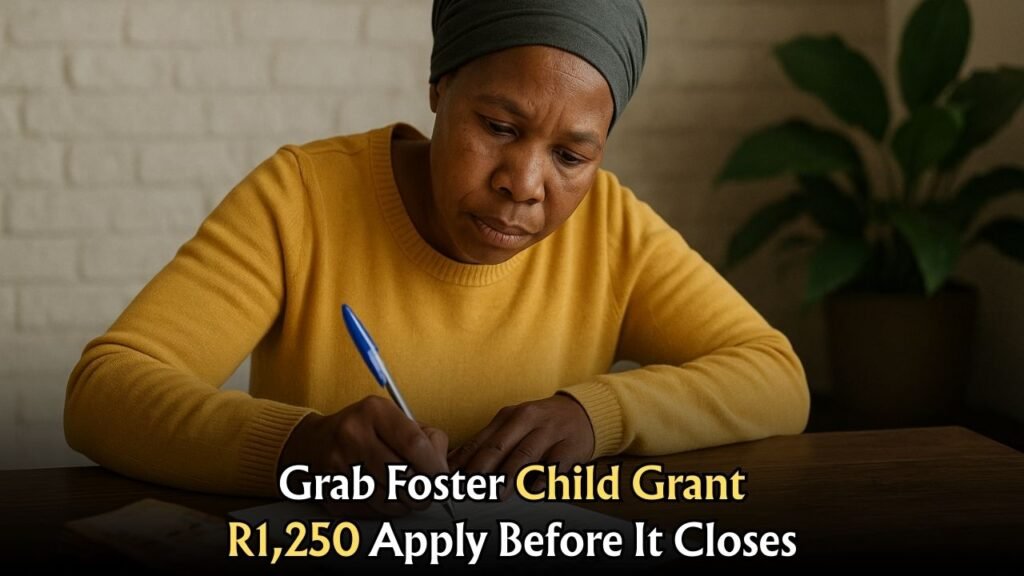Apply Now for R1,250 Foster Child Grant: In a country where many face economic challenges, the R1,250 Foster Child Grant offers a vital lifeline to families caring for children in need. The grant, administered by the South African Social Security Agency (SASSA), provides essential support to ensure the well-being and development of foster children across the nation. With a straightforward application process, eligible caregivers can secure this financial assistance to help cover the costs associated with raising a child. It’s crucial for potential applicants to understand the requirements and take action promptly to benefit from this valuable program.

Understanding the R1,250 Foster Child Grant Eligibility
To benefit from the R1,250 Foster Child Grant, it is essential to meet specific eligibility criteria set forth by SASSA. Primarily, the grant targets individuals who have been legally appointed as foster parents by the court system. This not only includes relatives of the child but also non-relatives who are legally recognized as caregivers. The child’s age is also a crucial factor; the grant is available to children under the age of 18. In certain situations, if the child is still in secondary education, the extension of the grant may be considered until the age of 21. It is important for applicants to provide all necessary legal documents and identification to prove their eligibility. Understanding these criteria can help streamline the application process, ensuring that those in need receive the support they deserve.
Application Process for the R1,250 Foster Child Grant
Applying for the R1,250 Foster Child Grant involves a few key steps. Prospective applicants must first gather all required documentation, including the foster care court order, the child’s birth certificate, and both the applicant’s and the child’s identity documents. With these documents, the application process can be initiated at the nearest SASSA office. A SASSA official will guide the applicant through the application form, ensuring all necessary information is accurately provided. It’s important to note that there is no fee for the application process. Once submitted, applications undergo a review process, and upon approval, grant payments are typically processed monthly, offering consistent support to foster families.
Maximizing the Benefits of the Foster Child Grant
Once the R1,250 Foster Child Grant is approved, caregivers can strategically utilize the funds to improve the quality of life for the child in their care. The grant can cover a range of needs, from basic necessities like food and clothing to educational expenses such as school fees and supplies. By prioritizing the child’s immediate needs and planning for future expenses, caregivers can ensure the grant is used effectively to provide a stable and nurturing environment. Additionally, staying informed about any changes in grant policies or amounts can help caregivers maximize the benefits over time.
Common Challenges and Solutions in Applying for the Foster Child Grant
While the process of applying for the R1,250 Foster Child Grant is designed to be straightforward, applicants may encounter challenges along the way. Common issues include missing documentation, misunderstandings about eligibility criteria, or delays in processing. To address these, it is advisable for applicants to double-check all required documents before submission and seek guidance from SASSA officials if uncertainties arise. Additionally, keeping a record of all interactions and submissions can help track the progress of the application. By being proactive and informed, applicants can overcome potential hurdles and secure the grant to support their foster children effectively.



